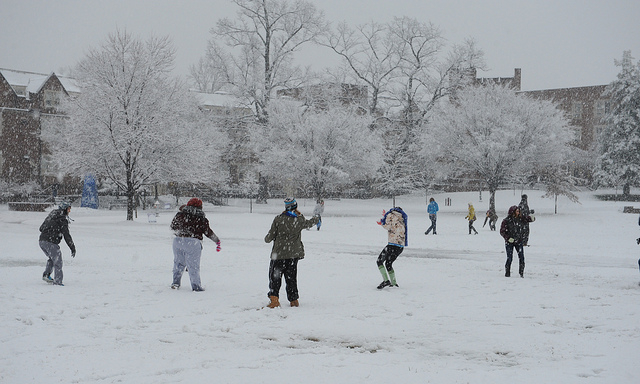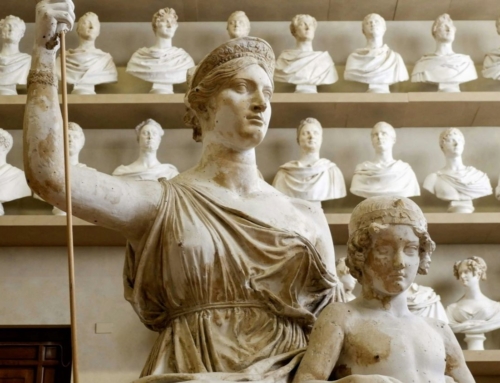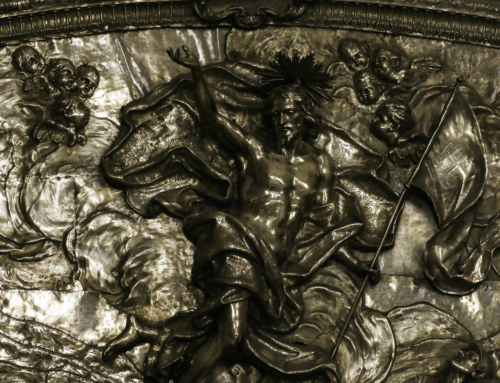It’s 5:00am. I’m snuggled in my dinosaur comforter as huge snowflakes careen with a purpose towards the already well-covered roads. I dream of Power Rangers. Life is good and it’s about to get better.
Then it comes. The phone rings in my parents’ room, and, though I have slept through every nocturnal phone call of the past, this one is different. I hear my mother reach for what could either be good or exceptionally good news. She exchanges a few words in her dulcet telephone voice and gets out of bed to come to my door. The moment of truth. Zero hour.
“Angel-Pie.”
“Mmhmm.”
“The woman from the phone-chain just called. School’s cancelled today, so you can sleep in.”
“Thanks, Mom!”
“OK, Honey. Love you.”
If my body didn’t require eleven hours of sleep a night to grow at its alarmingly rapid rate, I would get out of bed just to dance or zoom one of my LEGO space ships around the room. But alas, I require much rest, and I can express my joy with a smile as I roll over to sleep for a few more hours before the red-nose, hot-chocolate filled, toboggan-launching day really begins.
Growing up, snow days were unparalleled delight. I had done my homework. I had brushed my teeth. I had packed my lunch. And then I didn’t have to go to school. Instead, I just got to play, and then drink hot chocolate, and then play some more. I needed no explaining what the day was for. God had covered my whole neighborhood with a substance that: 1) could be slid on at high speeds, 2) could be fashioned into projectiles, and 3) didn’t even get my clothes dirty (not that I needed too much encouragement). Snow days were a Godsend. They were days of freedom and joy.
At a certain point in my life though, my feelings towards snow days began to evolve. With winter track, I became concerned about my workout schedule. Snow days were an interruption, and you could bet that there were other runners who weren’t taking the day off. I had to compensate and run regardless of the conditions. The long-term project also had its role to play. All of a sudden, snow days were opportunities to make progress on a research report or Mrs. Hall’s I-search paper. Pretty soon, what had been a veritable jubilee, a day acceptable to the Lord, became an extended working lunch. Snow days were no longer a day to enjoy, but one on which to capitalize until the routine resumed.
In retrospect, I begin to think that the transformation has not been altogether salutary. Undoubtedly, we are busier now than we once were—we certainly have more responsibilities. Perhaps those days were simply a time when we “spoke like a child, thought like a child, reasoned like a child” and now we have “put aside childish ways” (1 Cor 13:11). And yet, I fear that the new attitude may reveal something of our relationship toward gratuity in general. By treating time as a thing to be used, it begins to lose the ambience of abandon in which we were once free to make snow angels and put chocolate topping on bowls of snow. Instead, it becomes our greedily-guarded asset.
In the Screwtape Letters of C. S. Lewis, the eponymous demon encourages his understudy Wormwood to cultivate in man just this atmosphere of possession:
We produce this sense of ownership not only by pride but by confusion. We teach them not to notice the different senses of the possessive pronoun—the finely graded differences that run from ‘my boots’ through ‘my dog’, ‘my servant’, ‘my wife’, ‘my father’, ‘my master’ and ‘my country’, to ‘my God’. They can be taught to reduce all these senses to that of ‘my boots’, the ‘my’ of ownership.
For the greedy, here lies the peril of the windfall. No longer does it announce to us God’s time wherein to play with reckless abandon. Rather, it announces more of my time, to suck dry with efficiency. The weather report no longer announces to us a space of play and leisure, but rather an unforeseen possession which we can now use to our own weatherworn ends. But in so doing, we risk a fundamental ingratitude that imperils our reception of God’s blessings. As mature Christians, yes, we are prudent in the use of time, recognizing its limits. Yet we know those limits precisely because time is a gift from God, a gift for hard work but also for joyful fun.
As St. Augustine reminds us, some things are to be used, and some things are simply to be enjoyed. For him, the division corresponds to the divide between creatures and Creator. God is eminently unpossessable, unusable, unmanipulatable. Any attempt to subject Him to such treatment ends in disaster. Rather, God and His gifts (perhaps even snow days included) are to be enjoyed. The children at the sledding hill understand that. For us to rediscover that freedom, we must accept the accompanying terms: “Truly, I say to you, unless you turn and become like children, you will never enter the kingdom of heaven” (Mt 18:3). So let it snow, let it snow, let it snow.
✠
Image: Roanoke College, Snow day (CC BY 2.0)







